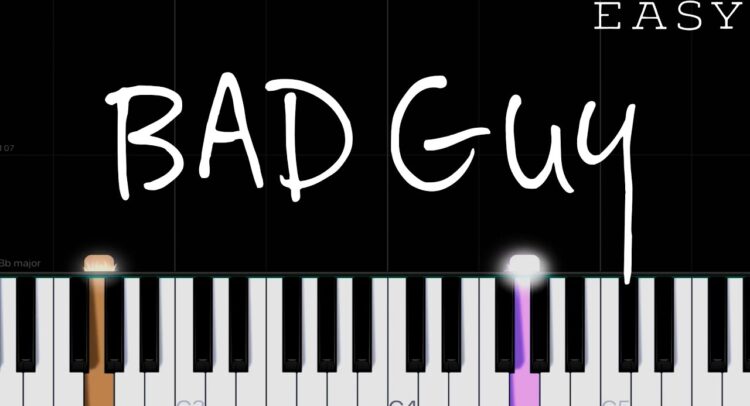Raboyseyee and Ladies,
One more mazel tov shout out to our friends Wendy and Chaim Frucher upon the very elegant and spirited wedding this past Sunday -with the Ois and eishes chayil in attendance- of their beautiful daughter Carlie, who is now married to Josh Chesner, he the son of Tammy and Danny Chesner, they of Teaneck N.J. Mazel tov to both extended families and may the newlyweds merit to build a beautiful life together.
Eisav: Hated from the Get-Go!
Shoin, Rashi, the heylige Gemora, and medrish are finally done with Yishmoel. They have successfully sullied and or destroyed his reputation and it’s time to move on and find another villainous victim. It won’t take long. Welcome to Parshas Toldois -mamish one parsha later where Yaakov and Eisav are born, celebrate their twin bar-mitzvas, and as brothers often do, they will go their separate ways. Let’s see what Rashi and others have in mind this week in their coverage of Eisav. Here is the headline: It’s not good. Ober, before we get into the details -before we read what Rashi and others had to say about Eisav- let’s begin here.
Growing up in the yeshiva world, we were taught -over and again- that Eisav was/is a bad guy. A very bad man and actor. And that he hates us in perpetuity. He does? Says who? In two more weeks – Parsha Vayishlach- the twin brothers will reconcile, they will mamish kiss and make up. But was that good enough for Rashi and other exegetes? Not! Rashi, on this one word which grada has a series of dots over each letter – suggests that the dotted word -see image- has deeper significance.
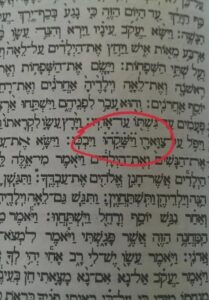
He cites a Midrashic difference of opinion as to Eisav’s sincerity in kissing Yaakov. One opinion is that of Rebbe Shimon bar Yochai, who says that Eisav hated Yaakov through and through but, at this particular moment, he was overcome with compassion and kissed his brother sincerely. Nice but let’s look at the first part of Rabbi Shimon’s statement where he says this: “Halacha hi b’yadua sh´Eisav soineh l’Yaakov.” But what does that even mean? In other words: Eisav and by extension his progeny, mamish hate Yaakov and the Jewish people. Fartig and case closed? We will circle back to this later.
Ober let us get back to Rashi and others who painted Eisav mamish ugly. So bad was he that his name was expanded to עשו הרשע “Eisav the Wicked.” Grada that’s quite the distinction because not many -in fact, very few- get to be called wicked; one needs to earn this title. Who made the list? Rabbinic literature uses the epithet הרשע (ho-roshoʿ) for a select few bad actors; let’s meet those who made top five list, generations before David Letterman and his top ten.
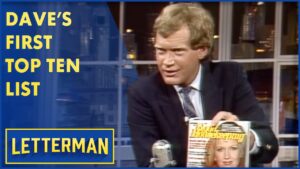
In somewhat chronological order, the list includes Paroy (Pharoah) -so says the heylige Gemora (Soitah 12a) davka because he enslaved the Yiddin and ordered the death of all male babies. Taka a bad guy. Paroy does of course deserve this appellation because the heylige Toirah specifically delineates his crimes against humanity. Next on the list is Bilham – Balaam for those of you who never made it to yeshiva except for your bar mitzvah lessons. Ironically the source of the entire bar mitzvah celebration is found mamish in our parsha where Rashi tells us that the word “Vayigdilu” (they grew up) means they had their bar mitzvis. Shoin. Bilham is referred to a rosho (bad man) because he intended to harm the RBSO’s chosen people. And if that weren’t enough -and avada it should be- Bilham was also involved in the seduction of a number of Yiddin -twenty-four thousand to be exact- into sexual exploits with the Moabite shiksas while also performing some act of avoido zoro (idol worship). How many times has the Ois told you that the RBSO hates that combo? Many! He will forgive sexual indiscretions as He did Yehudah for his roadside encounter and Dovid Hamelech who had eyes -and other body parts- for the married Batsheva. It’s avada good to be the king! And the heylige Mishneh (Ovois 5:19) so confirms. The heylige Gemora (Brochis 57b) also lists Nevuchadnetzzar, he, the destroyer of the First Beis Hamikdash (Temple); a very bad guy. But wait, there are a few more and seemingly they were all taka bad. We know their specific crimes either because the heylige Toirah so told us, or their sins are recorded elsewhere. Let’s move on to Homon aka: Haman whose entire story is recorded in the heylige Gemora (Megillah 10b), which spares no detail in telling us how he hatched a plot to destroy the Yiddin and convinced King Achashveyroish to enable his evil plot. Lucky for the Yiddin, Queen Esther used her charms, if you chap, and was able to put an end to the plot. The heylige Gemora has two more villains, let’s meet them. First up is Titus (check out the Gemora (Gittin 56b); he destroyed the second Beish Hamikdash. He and Nevucdnetzzar gave us Tishe Be’ov and fasting; bad guys. Who wants to fast so many hours on a hot summer day? And, last but not least, the heylige Gemora (Taanis 29a) mentions Tineus Rufus/Turnusrufus, consular legate of Judea at the time of the Bar Kochba revolt. Who was he? Says the achroin Wikipedia about him, azoy: Quintus Tineius Rufus, also known as Turnus Rufus the Evil (Hebrew: טוּרְנוּסְרוּפוּס הָרָשָׁע ) was a senator and provincial governor under the Roman Empire. He is known for his role unsuccessfully combating the early uprising phase of the Jews under Simon bar Kokhba and Elazar.
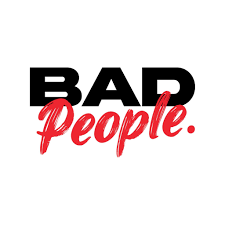
Ober, let’s get back to Eisav and his Rosho moniker; what the hec did he do to the Yiddin? To his parents? To the RBSO? Was he involved in some conspiracy to wipe out the Yiddin? Does he deserve the epithet? Not! What specific crime or crimes did he commit? And the answer? None! You read it here raboyseyee: Eisav committed no crime. Yet, Yaakov’s twin brother who was twice duped by his brother -who is ironically known for emes -honesty- was and remains labeled the rosho? Not just is Eisav innocent of any significant crimes, in the heylige Toirah itself, he is generally painted as the wronged party in the rivalry between the two brothers. He’s the victim!
Yet, it so happens that already in the pisukim leading up to his birth, Rashi and others took pot shots at the future Eisav. Let’s read a few examples of Rashi’s consistent denigration of Eisav. Rashi has almost nothing good or even neutral to say about him and that statement is mamish 100% emes. Conversely, Yaakov is portrayed as a righteous soul without a blemish on his character. Moreover, contrary to the opinion that Rashi only made use of midrashic sources when they help solve an exegetical problem, or fill an important lacuna in the narrative, it seems clear, at least in the case of Eisav, that he read pisukim against their plain meaning in order to impress upon the reader the utter wickedness and depravity of Eisav. Wow! Did Eisav screw Rashi in some business deal? Also not!
Let’s check a few Rashis about the future Eisav before his birth: While still in his mother’s womb, we read azoy (Bereishis 25:22): Rivka is suffering because the boys are struggling in her womb and says the first Rash on Eisav, azoy:
ויתרוצצו. עַ”כָּ הַמִּקְרָא הַזֶּה אוֹמֵר דָּרְשֵׁנִי, שֶׁסָּתַם מַה הִיא רְצִיצָה זוֹ וְכָתַב אִם כֵּן לָמָּה זֶּה אָנֹכִי? רַבּוֹתֵינוּ דְּרָשׁוּהוּ לְשׁוֹן רִיצָה; כְּשֶׁהָיְתָה עוֹבֶרֶת עַל פִּתְחֵי תּוֹרָה שֶׁל שֵׁם וָעֵבֶר יַעֲקֹב רָץ וּמְפַרְכֵּס לָצֵאת, עוֹבֶרֶת עַל פֶּתַח עֲבוֹדַת אֱלִילִים, עֵשָׂו מְפַרְכֵּס לָצֵאת.
“And [the boys] struggled” — You must admit that this verse calls for a midrashic interpretation since it leaves unexplained what this struggling was about, and it states [that she exclaimed] “If so, why am I [suffering]?” Our Rabbis explain that the word va-yisroitzetu has the meaning of running [moving quickly]: whenever she passed by the doors of Toirah [i.e., the yeshivas of Shaim and Ever], Yaakov moved convulsively trying to come out, but whenever she passed by the gate of a pagan temple Eisav moved convulsively trying to come out. Rashi is quoting the medrish (Medrish Rabbah 63:6) but is he giving us the entire medrish? Not? So happens that this very medrish contains other interpretations that are neutral on Eisav, speaking about the brothers in equal terms. Ober Rashi ignores these and picks the one that paints the still unborn Eisav in a bad light. While Yaakov – in utero mamish- desired to study the heylige Toirah which of course was still hundreds of years from being revealed, Eisav was already busy -in the womb- fighting to get out to worship idols. Nice! But emes? So we were taught.
Two pisukim later -posik 25- we read this: Rivka made her way to the -efsher mythica-l yeshiva of Shaim and Ever -mistama the first co-ed yeshiva in the entire world- where one of the leading rabbis told her azoy about her turbulent pregnancy. Rashi -also sourced from the medrish- tells us azoy: Eisav was wicked by nature.
ממעיך יפרדו. מִן הַמֵּעַיִם הֵם נִפְרָדִים זֶה לְרִשְׁעוֹ וְזֶה לְתֻמּוֹ.
“Shall be parted from your belly” From the belly they are separated, [each taking a different course] — one to his wickedness, the other to his [life of] integrity.
Ober does the heylige Toirah say anything resembling what the medrish has to say about the future of Eisav? Not! The statement in the text is totally neutral. Both boys will separate themselves from their mother’s body. Seems like a natural thing but Rashi gratuitously adds that one goes on his wicked way, the other follows a righteous path. Even if there is an exegetical need for a comment here, focusing on the “separation,” the good/evil dichotomy is certainly not called for. Why was Eisav so hated?
Wait: there’s more, much more but you get the point. On posik 24 Rashi takes another swipe -a big one- at the future Eisav. Following the medrish Rashi takes note of the unusual defective spelling of the word תומם, “twins”:
והנה תומם. חָסֵר, וּבְתָמָר תְּאוֹמִים מָלֵא, לְפִי שֶׁשְּׁנֵיהֶם צַדִּיקִים; אֲבָל כָּאן אֶחָד צַדִּיק וְאֶחָד רָשָׁע.
Behold, there were twins — The word for twins is written defective [without alef and you] while in the case of Tamar [it is written] תאומים [with alef and yud; Bereishis 38:27]; because in the latter case both children proved righteous while here one was righteous and the other wicked.
 As mentioned, there are other examples -several at least- of how Rashi and the medrish sully the still to be born, and the newly born Eisav but by now you all chap: Rashi and medrish abhorred Eisav from the get-go. As mentioned above, our parsha contains a reference to a bar mitzvah though not so in the text of the heylige Toirah itself; let’s read the words of the heylige Toirah (Bereishis 25:27):
As mentioned, there are other examples -several at least- of how Rashi and the medrish sully the still to be born, and the newly born Eisav but by now you all chap: Rashi and medrish abhorred Eisav from the get-go. As mentioned above, our parsha contains a reference to a bar mitzvah though not so in the text of the heylige Toirah itself; let’s read the words of the heylige Toirah (Bereishis 25:27):
וַֽיִּגְדְּלוּ֙ הַנְּעָרִ֔ים וַיְהִ֣י עֵשָׂ֗ו אִ֛ישׁ יֹדֵ֥עַ צַ֖יִד אִ֣ישׁ שָׂדֶ֑ה וְיַעֲקֹב֙ אִ֣ישׁ תָּ֔ם יֹשֵׁ֖ב אֹהָלִֽים׃
When the boys grew up, Eisav became a skillful hunter, a man of the outdoors; but Jacob became a mild man, raising livestock.
Says Rashi -again relying on and quoting the medrish (Medrish Rabbah 63:10) on these rather innocuous words of them growing up azoy: “And the boys grew up; and Eisav was….” As long as they were young, they could not be distinguished by their deeds and no one paid close attention to their natures, but when they reached the age of thirteen, this one went his way to the houses of study and the other went his way to idol worship.
ויגדלו הנערים ויהי עשו. כָּל זְמַן שֶׁהָיוּ קְטַנִּים, לֹא הָיוּ נִכָּרִים בְּמַעֲשֵׂיהֶם, וְאֵין אָדָם מְדַקְדֵּק בָּהֶם מַה טִּיבָם; כֵּיוָן שֶׁנַּעֲשׂוּ בְנֵי שְׁלשׁ עֶשְׂרֵה שָׁנָה, זֶה פֵּרֵשׁ לְבָתֵּי מִדְרָשׁוֹת וְזֶה פֵּרֵשׁ לַעֲ”זָ [לעבודה זרה].
The bottom line is azoy: from the time Rivka became pregnant and found out she’s having twins, Rashi and the medrish did not cut the future Eisav a break. Wherever possible, and -seemingly- without textual basis, he and they took the opportunity to paint the innocent child in the womb as a giferlich bum, an idol worshiper and much worse. Worse? What could be worse? Let’s read Veyter.
If all that we read above wasn’t enough for us to hate Eisav from day 1, here’s another severe blow to his reputation. Let’s read how Rashi labels Eisav a murderer. In posik 29, the heylige Toirah tells us that Eisav came home tired. And while the text describes Eisav as being tired from hunting, Rashi explains azoy:
והוא עיף. בִּרְצִיחָה, כְּמָה דְּתֵימָא “כִּי עָיְפָה נַפְשִׁי לְהֹרְגִים” [יר’ ד, לא].
A murderer? And yet his father Yitzchok loved him and wanted to bestow special birthright brochis upon him? Was Yitzchok not aware that his son was also -amongst many other giferliche attributes- also a murderer? Or, are all these things made up -so to speak- in order to paint Eisav in a bad light? It appears to the Ois that Rashi, following the medrish and on -rather flimsy grounds- accuses Eisav of many bad acts, including capital offenses. The poshit pshat (plain meaning of the word tired) would be that he was but exhausted from a long day of hunting. Ober, Rashi changes the wording of the medrish which says that he “killed a soul” (הרג את הנפש). Who says the soul was human? He was a hunter. Yet, Rashi has Eisav committing murder mamish.
Ober wasn’t he a bad guy for marrying a Canaanite shiksa? Then again, didn’t our man Yehudah do the same? He did! But Yehudah gets only positive praise. Yaakov married four sisters; did anyone make noise about that issue and label Yaakov a polygamist? It’s taka emes that in our parsha -near the end- that Eisav threatens to kill Yaakov. Eisav was taka pissed off but did he act out on his threat? Not! Farkert! He and Yaakov kiss and make up -two parshas ahead. In the end, Eisav didn’t carry out his hot-headed threat. Ober let us recall what Shimon and Levi did when they got angry. We all know that other biblical characters, such as Yehuda and Shimon & Levi do things that seem pretty evil (sell their brother, kill an entire city), yet are considered “righteous.” What’s taka pshat here?
Shoin, the heylige Ois has a theory, one that could land him in some trouble with those who maintain -rather forcefully- that every medrish ever written is 100% emes- for arguing with Rashi and the medrish over Eisav, and it goes azoy: First, we need to separate Rashi’s own words from those where he quotes from the medrish. In the case of Eisav, Rashi may have had an agenda. And in the case of the medroshim he quotes, they had some advantages when writing them.
Let us keep in mind that midroshim read history backwards. They sat down to work way after the heylige Toirah was gifted to us by the RBSO. They knew that in Sefer Bereishis, many were selected while others rejected. They knew that Yishmoel was rejected. Only Yitzchok was selected to be the “carrier” of the RBSO’s blessing and promise to Avrohom. Those authoring the medrish assume that there must have been something undeserving in him or he must have done something terribly wrong. They had hindsight bias! Yes, this is a real concept. Among other things, Hindsight bias may cause distortions of memories of what was known or believed before an event occurred, and is a significant source of overconfidence regarding an individual’s ability to predict the outcomes of future events.

What to do when the text does not specifically tell us Yishmoel was a bad actor yet we know he was rejected? Make it up from whole cloth? Not exactly: instead, they “read into the text.” Medrish will use their license-to-carry proverbial guns along with detective skills to find wrongdoings or flaws by looking carefully at words or sentences to justify their desired results as his destiny. Their license allows them to kill a reputation. After all, he must have been rejected for a reason. The fact the RBSO said no such thing, does not stop them or bother them.
The same is sadly true for Eisav. All we know with certainty is that Eisav was not chosen (or even “co-chosen”, as were the maybe not so holy shvotim who plotted a murder, were guilty of kidnapping and other less-than-admirable conspiracies)- as Yitzchok’s primary progeny. He was rejected. With that fact, according to the medrish, Eisav must have been a bad person to deserve his fate. The bottom line: armed with historic facts -mamish from the words of the heylige Toirah- medrish does not hesitate to interpret slight nuances in the text and conjure up back-stories that explain Eisav’s evildoing.
Oib azoy (if that’s the case), is medrish mamish acrophyll? Say it’s not so please, but is it? What’s pshat here? Was Eisav really that bad guy? Why does medrish so paint him? Are they correct?
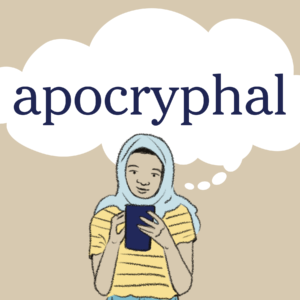
From what we read in Rashi and the medrish Eisav was mamish a bum and did some very bad things on a very regular basis. Did they just imagine these things and wished them into existence, at least on paper? Ober raboyseyee, we have to believe that medrish does not -stam azoy- randomly, make stuff up. And that’s where it all begins and ends: if you believe, all makes sense, even the medrish. Medrish is a large part of the Oral Toirah (Toirah she’baal peh). Medrish seemingly believes that the oral tradition is a foundation of our faith; so we were taught in yeshiva. The RBSO gave Moishe the Written Toirah (she’bichsav) along with the Oral Toirah (she’baal peh), both are from the RBSO and you can’t have one without the other. Go prove otherwise. Were you there?
The good news: for both Yishmoel and Eisav, there was some good news, even in the medrish. According to many, While Yishmoel was a bad man, later in life, he did tshuvah (he became a penitent) and all was forgiven. As to Eisav, at least one medrish says that Eisav’s head is buried in the Meoras Hamacpela alongside his brother Yaakov and his other ancestors. Seemingly his head repented, his body not so much.
A gittin Shabbis!
The Heylige Oisvorfer Ruv
Yitz Grossman
